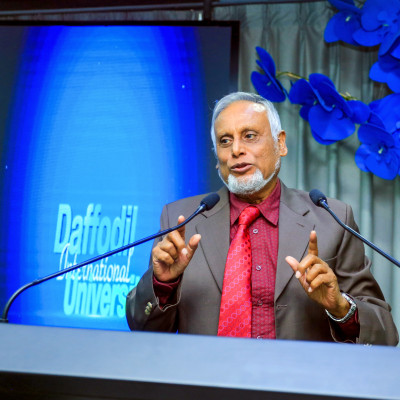Sessions / Location Name: Motivation and Engagement
Physical Location
Location: 600
Promoting Multilingual Literacies in a Buddy Reading Program in South Africa #4074
This presentation explores multilingual practices implemented in an after-school buddy reading program with Grades 3 and 7 learners from a township school in South Africa. In this qualitative study, learners were provided with a selection of linguistically and culturally relevant books in both isiXhosa and English, enabling them to maintain their home language while simultaneously learning their first additional language. Given that the participants were emerging bilinguals, the study explored educational activities that valorise multilingualism, in a complementary manner to support multilingual development. Activities such as interactive reading with translanguaging, storytelling and retelling in both languages, and the use of bilingual storybooks were designed. The multilingual strategies implemented in the program supported linguistic development and enhanced learners’ confidence in their ability to use both languages in social and academic contexts. The study recommends promoting multilingualism to policymakers and educators, highlighting its importance in nurturing literacy, linguistic diversity, and cultural identity.
Student Engagement with Free Chosen and Assigned Books in an ER Course #4071
This study investigated an Extensive Reading (ER) implementation in a university classroom. It involved the first-semester students who read a combination of the same graded readers at different levels and self-selected books based on their preferences. The study focused on students' engagement and progress on the combination as well as on group dynamics in the classroom. The data collection included students’ reading logs, group work results, and students’ feedback. By analyzing student feedback and individual and group reading engagement data, the study found that most students participated in the group reading and enjoyed the combination of two types of book choices. However, some challenges such as book availability, demotivated students, and students’ reading speed were still present.
What Makes a Book Yomigai-Laden? Student Perspectives on Reading Fulfillment #4072
Extensive reading (ER) should be truly fulfilling to students. While enjoyment is reported to be vital in language learning, meaningful ER goes beyond positive emotions. Drawing insights from psychological and sociological research on well-being, this study introduces Yomigai (sense of fulfillment/worthiness from reading)—a Japanese concept derived from Ikigai (life purpose) and Yarigai (situational ikigai)—as a holistic concept integrating emotions, motivation, engagement, and more. A survey conducted with Japanese university EFL learners quantitatively (multiple-selection) and qualitatively (comment) examined their most Yomigai-laden books, reasons for their choice, and emotions experienced. Findings indicate that curiosity and interest, combined with challenge and immersion, contribute to Yomigai. Length and difficulty were perceived as motivating rather than discouraging. These findings corroborate the Deep Epistemic Emotion Hypothesis. Response examples and practical strategies to enhance Yomigai in ER are also discussed. This research provides insights into optimizing ER programs for deeper, more fulfilling learning experiences.
Boosting Emotional Growth and Reading Motivation with Digital Narratives #4076
Digital storytelling is a pedagogical approach aimed at enhancing students' motivation, critical thinking, learning outcomes, and socio-economic development. Recent studies indicate its effectiveness in teaching English as a second language to forty-five tertiary learners, assisting in mitigating negative emotions such as shyness and fear of speaking, embarrassment in classroom settings, and lack of confidence when using English in social contexts. Students were randomly divided into eight independent groups. The four controlled groups were taught the basic use of PowerPoint to digitalize their bilingual storybooks. Other groups were granted the autonomy to create a digital storybook outside the classroom using other Apps such as CapCut or Canva. Flipping the classroom has proven to be an effective strategy for encouraging verbal expression while also fostering trust and connection among group members. The digital narratives effectively engaged learners, enhancing their motivation to read and understand the content.
Extensive Reading in Japanese (Tadoku) for College Students in Vietnam #4102
Extensive Reading (ER) is widely practiced in English language education worldwide, yet its application in Japanese—known as Tadoku—remains limited due to a lack of research, resources, and implementation. In 2020, I introduced Tadoku into the reading and writing curriculum at the University of Languages and International Studies, VNU Hanoi. Since then, it has been positively received by students. Surveys conducted from 2021 to 2024 show that over 80% of participants enjoy Tadoku activities and find them beneficial. Furthermore, Tadoku has inspired student-led research projects, contributing to curriculum innovation and increased learner engagement. Given these positive outcomes, Tadoku holds strong potential to enhance reading motivation and skills in Japanese language education across Vietnam. This presentation will explore the implementation process, highlight key challenges and successes, and share practical strategies—such as material selection, activity design, and student engagement techniques—that support the sustainable integration of Tadoku into university programs.
Fostering ER Engagement in EFL Book Report Class through Deep Learning #4106
Studies in the last two decades have shown that Extensive Reading has great impacts on English learners’ language development (Bell, 2001; Day et al., 2011, Nakanishi, 2015). However, in EFL context, its impact depends on how deeply learners engage with texts. This presentation aims to share the implementation of deep learning approach in ER-based Book Report Class in Indonesia context and how it fosters students’ deeper text interaction, analytical skills, and reading motivation. Deep learning is the new approach to education In Indonesia, highlighting deep understanding rather than surface-level learning. A qualitative research methodology was applied to examine how deep learning approach, and its three fundamental aspects (meaningful, mindful, and joyful) can foster Indonesian university students’ active, meaningful, and collaborative engagement. Data collection includes classroom observations, student reflections, and interviews. The findings show that deep learning fosters students’ deeper text interaction, improves analytical skills, and increases motivation to read.
Enhancing Extensive Reading through Collaboration #4241
This presentation will describe a study investigating the role of collaborative learning in enhancing student engagement in ER. While this topic has been widely documented, little attention has been paid to collaborative reading in online environment. First-year EFL college students were instructed to share their ER experiences with their peers through an LMS while working on ER. A post-course questionnaire was administered to examine the extent to which collaboration influenced their learning process. The findings suggest that collaborative learning had a positive impact on various aspects of students’ reading engagement, including goal achievement (e.g., word count and book completion), self-regulation in pacing, adherence to deadlines, and the selection of appropriate reading materials. These results indicate that incorporating collaborative elements into ER programs may enhance student motivation and accountability, particularly among reluctant readers. The study underscores the potential of collaborative learning in fostering more effective and engaging ER experiences.
Exploring Engagement and Motivation in Extensive Reading #4245
Extensive reading (ER) provides learners with opportunities to read for enjoyment and develop reading skills without formal assessments This study investigates factors influencing both motivation or the reasons students choose to read and engagement or how actively they participate in a weekly graded reading program involving 52 university students in a critical reading class. Using surveys and semi-structured interviews, the study explores students' experiences, challenges, and perceived benefits of ER. Findings reveal key motivators that sustain participation, as well as obstacles that may hinder engagement. The session offers insights into how ER activities can foster student engagement and potentially increase the amount of reading they do. Attendees will gain practical recommendations for implementing ER in similar educational contexts and strategies to encourage students to read more through meaningful engagement.
What Makes Extensive Reading Work? The Hidden Power of Teacher Coaching #4247
The success of Extensive Reading (ER) is not just about how many books students read, but how effectively teachers coach them. A strategic and reflective approach is essential for maximizing outcomes. This presentation introduces six key coaching elements shown to be effective in EFL contexts. First, teachers identify student interests through interaction and observation. Second, they define reading thresholds that represent the minimum input needed for ER to be effective. Third, questioning techniques promote critical thinking. Fourth, motivational systems support long-term engagement. Fifth, fluency develops as phonics instruction is naturally embedded in meaningful reading experiences, including repeated read-alouds. Sixth, positive teacher language builds student confidence. Drawing on ten years of classroom experience, this session shares real examples of how these elements shape students’ reading habits and performance. This approach helps transform ER into a sustainable, engaging process that fosters deeper involvement and long-term personal growth.
Does an Online Buddy Reading Community Encourage ER Among Adult Learners? #4373
Buddy reading is a collaborative reading experience where individuals read the same book and discuss it together. This presentation introduces an online buddy reading community that encourages extensive reading among adults in Japan as a form of lifelong learning. Established in July 2023, the group has 27 members, meets monthly via Zoom, and communicates through LINE. So far, they have read five books. The presenters, one organizer and one participant, will share research findings focusing on how the community supports continuous language learning and fosters reading as a more social activity, based on data such as LINE communication records, participation notes, and interview transcripts. In addition, further details will be shared. This community model highlights how digital platforms can bring readers together from diverse backgrounds to share insights, build connections, and support one another’s learning journeys. The presentation will also explore ways to enhance engagement in similar online reading communities.
Developing Support Systems and Book Catalogs for ER in Indonesian Language #4128
Since 2021, the author has incorporated ER-related activities in Indonesian language courses, primarily using children's books. For less commonly taught languages that lack Graded Readers, children's books are often recommended as an alternative. Day & Bamford (1998) and Nation & Waring (2020) note that, despite not aligning with university students' cognitive levels, many children's books explore universally relevant themes such as environmental issues, endangered species, cultural heritage, and food. Lestari (2024) highlights that although these texts are not simplified or controlled, making them challenging for beginners, the Spring 2024 ER program ran smoothly and received positive feedback. This presentation will examine the types of support needed for integrating children's books into ER, showcasing book catalogs designed for Indonesian learners, including online and print resources, student feedback, and rating scales.
Reading Triangles with Posters #4406
In my presentation I would share my experience about an approach called ”Student Triangle of Support,” known as a three way relationship that exists between parent, teacher and child that opens communications lines for helping students succeed. An English reading development plan was discussed by parents and teachers then we used an ER online library and held a reading marathon was named ‘’Let’s read with purposes as a class.” 58 students participated in the marathon. Students read in small teams several times, created book posters, and organized creature exhibition that encourage them to continue reading. Explaining their creative works to the parents and teachers helped them develop good presentation skills. As a result, ER was succcessful in my class because developing students' reading skillsis always encouraged by both parents and teachers.
Wuri & The Waves: A Metaphor for How Learning Happens #4407
This presentation will share insights into Wuri and the Waves, a story that was commissioned by the Extensive Reading Foundation in 2024 to be used for a reading roadshow in Indonesia. Reflecting on the themes of resilience, loss, identity and change, crafting this narrative required balancing accessible language with complex emotions, demonstrating that graded readers are not just language tools but powerful vehicles for meaning and for the co creation of meaning on the part of the reader. Writing this story was an exploration of how storytelling can carry deep emotional impact. As the story unfolded it became, to a certain extent, a metaphor for how learning happens.
Reviving the Legacy of Michael West #4472
The session will focus on the contributions of Michael West, the third Principal of Teachers’ Training College, Dhaka, who worked here from 1920 to 1932. He observed that few pupils had real reading ability in English, were not able to speak more than a few disjointed sentences and could write very laboriously. A focus on reading, he thought, could provide students with a foundation which would be useful in developing other language skills as well. Therefore, he developed The Reading Method, supplemented by graded readers, which became popular worldwide. The tradition continued even after the birth of Bangladesh in 1971 in the form of Rapid Readers, but was discontinued on the grounds of being improperly used. Michael West Study Centre (MWSC) was established at Dhaka TTC in 2024 with a view to reviving supplementary graded readers for different levels of education.

















